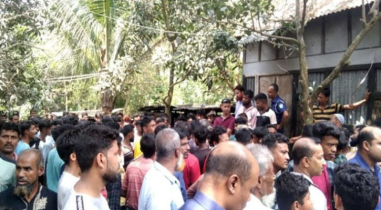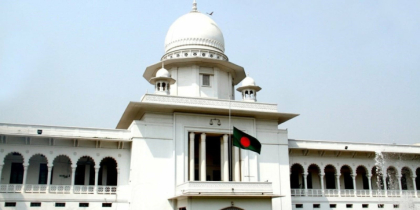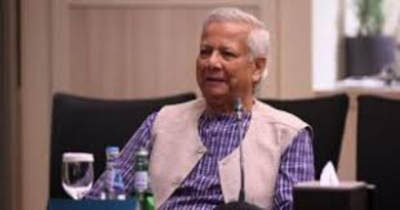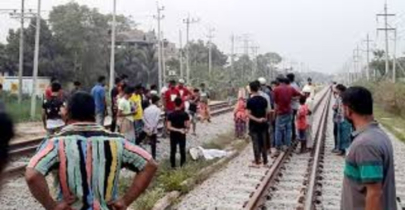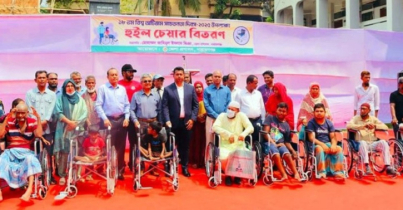
Nowadays, even minor incidents make Narayanganj’s garment workers highly agitated. They give the factory owners harsh looks.
Since the anti-discrimination movement, some workers, under the shelter of labor leaders, have formed their own leadership circles. These workers are constantly in conflict with the management. If someone misses regular work and management asks for an explanation, these leaders’ supporters cause trouble in the factories and threaten other innocent workers to join protests. This has led to increasing unrest in the garment sector, fueled by petty labor leaders.
Narayanganj has over 800 export-oriented garment factories employing more than 1.5 million workers, mostly in Fatullah Industrial Area. Entrepreneurs in the BSCIC (Bangladesh Small and Cottage Industries Corporation) industrial area of Fatullah complain that the lack of adequate police forces is being exploited by miscreants posing as workers to carry out attacks. After the fall of the Awami League government on August 5, various groups have taken to the streets with different demands. Garment workers' demands are not uniform. Some demand equal employment opportunities for men and women, maternity and night-shift allowances, and health care support, among others. Factory owners believe many of these protests are instigated by outsiders.
Mohammad Hatem, President of the top garment owners’ association BKMEA, stated that most garment workers are innocent and focused on their work. Only a handful create chaos, including a few troublemakers and NGO agents. They manipulate innocent workers into wrongdoing. Additionally, some political groups are exploiting the garment sector’s instability due to weak law enforcement.
He added that criminals are emboldened by lax law enforcement and feel that neither the police nor the military will use force against them. As a result, they’re not afraid to engage in criminal activities. He cited a recent example: On Tuesday, a factory owner in Narayanganj failed to pay workers' salaries. External attackers took advantage of the situation, vandalized the factory, and fled when nearby workers chased them away.
The BKMEA president mentioned that some factory owners are genuinely struggling, partly due to banking issues. Workers often don’t understand these difficulties. Sometimes, factory owners write checks for wages, but the banks lack sufficient cash. This situation arose due to massive bank embezzlements during the previous government’s tenure.
The labor advisor urged factory owners to clear all unpaid wages. He said that workers' tireless efforts keep the factories running and the country’s economy growing. He emphasized the implementation of the government-declared minimum wage in all factories. If not implemented, legal action will be taken, and administrators will be appointed if owners face issues. Authorities will also investigate whether outsiders are instigating worker unrest.
Labor advisor Sakhawat instructed the formation of cluster-based committees in industrial areas like Gazipur, Narayanganj, Ashulia, and Savar to investigate and resolve labor unrest. These committees will monitor the payment of wages and benefits, identify the causes of labor dissatisfaction, and take effective action to address them.
On February 19, Eurotex Knitwear workers blocked the Narayanganj-Dhaka Link Road in Fatullah’s Lamapara area from 2:00 PM, demanding the withdrawal of cases, the reopening of laid-off factories, and the reinstatement of terminated workers. The protest caused significant traffic jams. Later, additional police and BGB forces calmed the workers and lifted the blockade.
Workers and police reported that around 4,000 workers at Eurotex Knitwear Limited had been protesting inside the factory since February 11 over one month’s unpaid wages and other demands. Some vandalism occurred during the protests. Following this, factory official Sajedul Islam filed a case with Fatullah Model Police Station against 28 terminated workers for vandalism. Since then, workers have been demanding the case’s withdrawal and the reinstatement of those fired.
A small garment factory in the Masdair Police Line area faced financial difficulties, leaving workers with two months’ unpaid wages. The owner, unable to get bank support, decided to suspend production after consulting the workers. A payment plan was agreed upon, with female workers being paid first. The factory had only 46 workers, and its owner was from Jamalpur.
However, some local workers informed labor leaders about the owner’s financial weakness and falsely claimed that 400 workers were owed eight months' wages. They also spread rumors that the owner was selling off machinery and fleeing.
Labor leaders brought in unemployed workers from BSCIC and staged a roadblock in the Police Line area, demanding the owner’s arrest. The owner had been selling machinery to pay the workers, but this plan was disrupted. The BKMEA later investigated the issue and found that the owner was a victim of worker conspiracy, as some workers intended to extort a large sum from him. The BKMEA resolved the matter through intervention.
On January 19, two groups of garment workers clashed in Shashongaon, Fatullah. Vandalism occurred at two factories, Mother Color and RS Garments, leading the authorities to close several nearby factories.
Shahnewaz, Assistant Admin Manager of Mother Color Garments, explained that a worker named Ripon had been absent for four days. Upon returning, his supervisor Mizan scolded him, leading to a physical altercation. The incident caused widespread tension among the workers. The factory declared a holiday to diffuse the situation. Later, workers from Mother Color called on RS Garments’ workers to join their protest, but when they refused, the two sides clashed. Law enforcement eventually brought the situation under control.
TH

.png)
